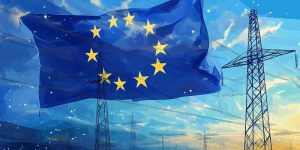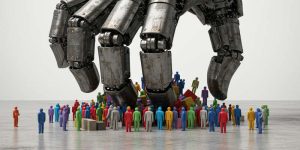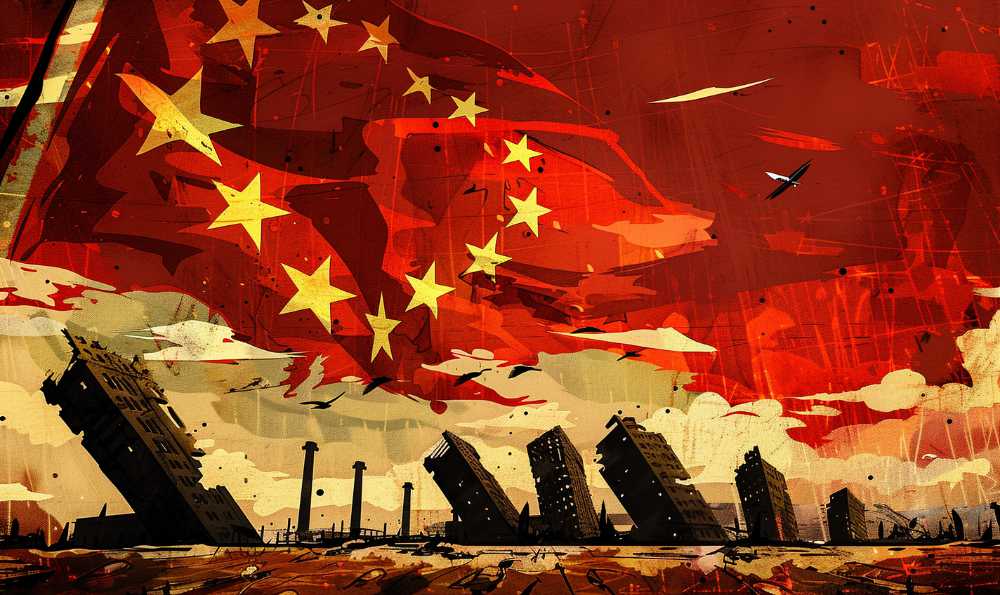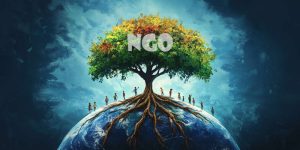Fact-checkers: The Modern Weapon of Totalitarianism
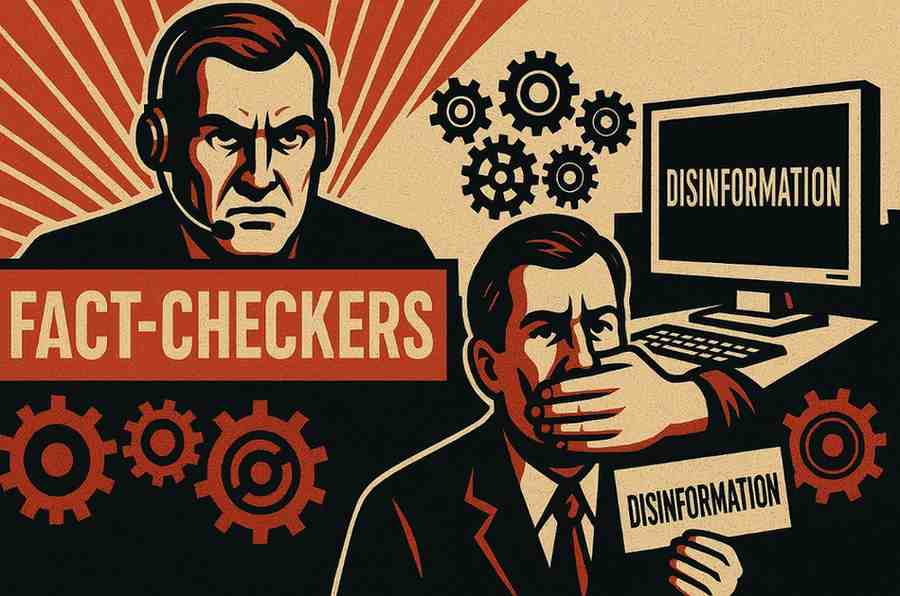
In a healthy democracy, debate is free, diverse, and open. Contradictions are not suppressed but discussed. Yet in the modern European Union – and more broadly the entire Western establishment – a new phenomenon has emerged that stands in direct opposition to that principle: the “fact-checker.” These self-appointed gatekeepers of truth present themselves as objective guardians of facts but in reality serve as ideological agents for powerful institutions.
With terms like “disinformation,” “misinformation,” “conspiracy theory,” and “dangerous content,” legitimate opinions and criticisms are dismissed as immoral, ignorant, or even criminal. Instead of engaging in open discussion, dissent is preemptively silenced. This is not a new tactic, but one drawn directly from the playbook of totalitarian regimes.
Governments now say: “You can say anything, as long as it’s true.” But then the government defines what is “true.” In doing so, the essence of free speech is lost. The idea that opinions can be wrong, that discussion leads to correction and growth, is replaced by the technocratic illusion of “verified truth.”
The role of fact-checkers as ideological watchdogs
Selected facts, selective truths
Fact-checkers pose as neutral arbiters of truth, but in reality, they choose which narratives are allowed to exist. Who decides which claims get checked? Who decides what is “true”? In practice, major fact-checking organizations – such as Facebook-funded Correctiv, U.S.-based Snopes, the Dutch NUcheckt, or the “independent fact-checking network” of Poynter – almost always side with governments, pharmaceutical companies, climate institutions, or supranational bodies like the EU and WHO (Who watches the fact-checkers?, Brownstone Institute).
Rarely are official government claims scrutinized. Instead, it is often citizens, journalists, or scientists offering alternative analyses who are censored with the push of an algorithm. Professor John Ioannidis experienced this firsthand when his critical studies on COVID were removed from YouTube, despite his global recognition as a top scientist (Censorship and the suppression of scientific debate, Nature).
In 2020, journalists and scientists who suggested COVID might have originated from a lab in Wuhan were dismissed as conspiracy theorists. Years later, the same hypothesis was quietly admitted to be “plausible” by mainstream media – without apology to those previously censored (How the Lab Leak Became Plausible, Wall Street Journal).
The unity of government, media, and tech
In classic totalitarian systems, there is no separation between the state, media, and information dissemination. That is exactly what we are seeing today. Governments fund fact-checking organizations, while tech giants like Google, Meta, and X (formerly Twitter) work closely with state institutions to remove “harmful content” (Twitter Files: Government colluded with platforms, Taibbi).
The EU actively pushes policies to strengthen cooperation between tech companies and fact-checkers. Under the Digital Services Act, platforms are obligated to proactively remove “disinformation” – using broad and politically biased definitions (Digital Services Act and the Censorship Regime, European Commission).
The EU also directly funds media outlets and so-called “independent” fact-check networks to secure its narrative. Whoever pays, decides – and in this case, the EU decides what “truth” is.
Disinformation as a pretext for censorship
A flexible term, unfairly applied
The term “disinformation” is extremely elastic. What is considered true today may be “fact-checked” as false tomorrow – and vice versa. Those who express criticism about climate models, migration policy, vaccine effectiveness, or lockdown measures risk being labeled as “disinformation spreaders.”
Some journalists lose their platforms, others are excluded from algorithmic visibility. Censorship no longer takes the form of bans or arrests, but of social and digital exclusion.
In Germany and France, citizens have even been prosecuted for voicing criticism online of vaccination campaigns or migration (Criminalizing Dissent: Germany’s Online Hate Speech Laws, Der Spiegel). In the Netherlands, state criticism is often neutralized not by rebuttal, but by being branded as disinformation.
The similarity with communist regimes
The Soviet Union had Glavlit, the institute that controlled and censored all publications. East Germany had the Stasi, which spied on citizens and reported ideological deviance. In these regimes, truth was defined by the Party – all other opinions were “enemy propaganda.”
Today we call it “fact-checking,” but the principle is the same. Truth is centrally defined, deviation is a violation, and non-conformity leads to exclusion.
In totalitarian regimes, the goal was never to convince the people, but to enforce obedience. “We know you don’t believe it, but you will say it – or else.” That is the psychological effect of today’s truth-policing.
The moral intimidation of “truth control”
Conspiracy theorist as modern-day heretic
The term “conspiracy theorist” today functions as a moral judgment, not a descriptor. It is not used to analyze but to ridicule. Like “far-right,” “anti-vaxxer,” or “climate denier,” the label is designed to push people outside public discourse – not to challenge their arguments.
Those who ask critical questions about the origins of a virus, digital currency, climate policy, or the motives behind mass migration are lumped in with flat-earthers or antisemitic fantasists. This is not debate – this is moral intimidation.
Fact-checking has become the new inquisition: you hold the wrong opinion, therefore you are wrong. The result is not better information, but more conformity.
Self-censorship as the ultimate goal
The most effective tool of totalitarianism is not prison or punishment, but fear. The fear of losing your job, your friends, or being publicly shamed online creates a culture of self-censorship. More and more people say nothing, afraid of being labeled a “disinformation spreader.”
In that sense, fact-checkers and disinformation campaigns are not just instruments of repression but also psychological weapons. They control citizens without needing physical coercion.
According to George Orwell, the ultimate goal of totalitarianism is not just to enforce obedience, but to destroy the ability to think independently. That is precisely what modern truth-enforcers seek to achieve – in the name of the “greater good.”
The perverse logic of centralized truth
Power that verifies itself
Whoever determines what truth is, gains power. But whoever holds the power to define truth is never held accountable themselves. Fact-checkers scrutinize citizens, journalists, and independent thinkers – but who checks the fact-checkers? Who checks the EU, the UN, the CDC, the public broadcasters, or the European Parliament?
The answer is clear: no one. As in any centralized pyramid of power, they validate each other’s authority. A government claim is supported by a government-funded institute, which is cited by a government-subsidized fact-checker, which is promoted by a platform that cooperates with that same government.
The citizen, without money or media reach, stands powerless.
Erasing nuance and grey thinking
Ultimately, the idea of “truth control” leads to the deadly simplification of complex issues. Vaccines are not simply “good” or “bad.” Migration is not simply “right” or “wrong.” Climate change is not “true” or “false.” These subjects demand debate, balance, and pluralism.
But fact-checkers need black and white. Their existence depends on binary answers. So doubts are stigmatized, alternatives are filtered out, and nuance is erased. The result is a digital reality that increasingly resembles state propaganda.
Conclusion: truth is no longer free
The rise of fact-checkers and the obsession with “disinformation” reveals a society that has lost faith in freedom. What began as a noble effort to combat lies has evolved into a system where only state-sanctioned “truths” are permitted.
Those who question this system – whether about climate policy, medical freedom, geopolitical conflicts, or migration – are not refuted, but excluded. This trend is characteristic of totalitarian regimes, not free societies.
The battle over truth is always a battle over power. And in the European Union today, it is clear who is claiming that power – and who loses it when they dare to ask questions.

